
Newsletter Subscribe
Enter your email address below and subscribe to our newsletter

Enter your email address below and subscribe to our newsletter
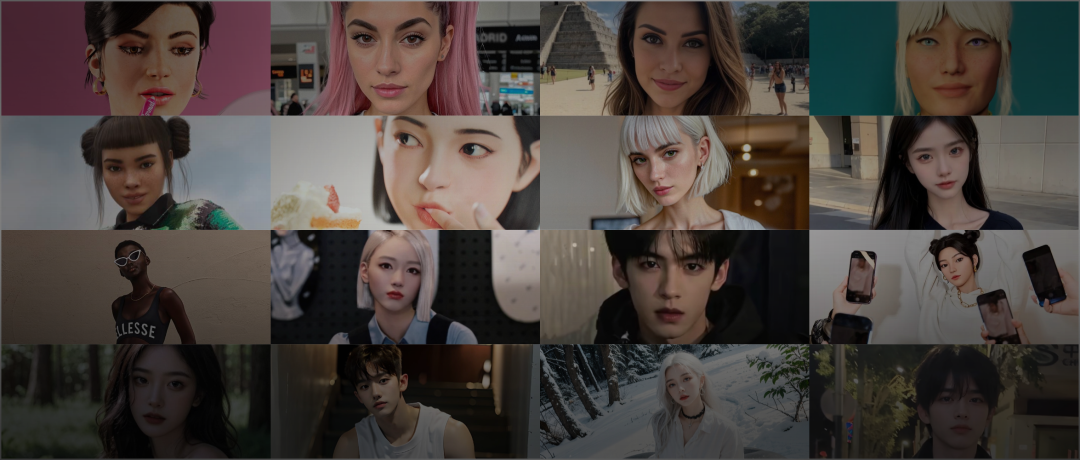
In January 2024, a creator brought to life an impeccable AI influencer named Emily Pellegrini, shaped according to ChatGPT’s answer – “a long-legged girl with brown hair.” As soon as Emily hit the online scene, she garnered massive attention, leaving many believing she was a real personality. Billionaires and rising sports stars extended invitations her way, solidifying her status as a sought-after virtual sensation.
The creator of Emily, in an interview with the Daily Mail, shared that Emily’s popularity surpassed expectations, now consistently earning $10,000 per week.
Over the past year, we’ve witnessed numerous stories about AI influencers:
Although their images are synthetic, often generated through artificial intelligence, these “bloggers” have become trailblazers in the commercialization of AI.
Most virtual bloggers identify as “digital content creators,” rapidly rising across various social platforms, gaining substantial followings and catching the eye of fashion magazines and brands alike.
Observing the AI landscape, iFoto notes that some virtual bloggers leverage AI technology and CGI to create synthetic characters, while others are based on AI-generated figures from platforms like Midjourney and Stable Diffusion. These bloggers attract a wave of admiration, especially among “beauty enthusiasts.”
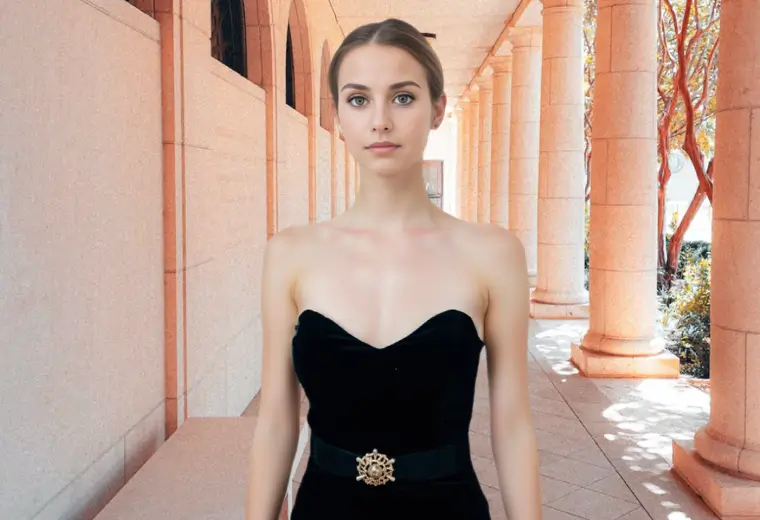
Generate AI Fashion Models for Free
Create AI-powered fashion models for your e-commerce. Transform apparel photos on mannequins into customizable models, allowing you to adjust skin tone, age, expression, and body size with ease.
How popular are these AI-generated influencers? Let’s explore some of the most popular virtual influencers in the AI field, examining their characteristics and commonalities. (Data accurate as of January 18, 2024)
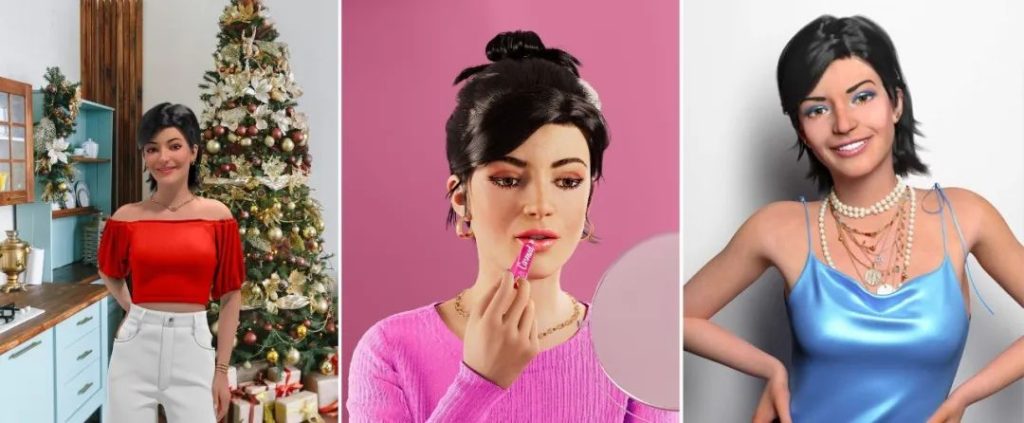
Fans: Facebook 14.6 million, TikTok 7.3 million, Instagram 6.799 million, ? 1.3 million
Company: Magazine Luiza
Introduction: Lu Do Magalu, a Brazilian AI influencer, is hailed as one of the world’s highest-earning AIs, with an annual income of $17 million in 2022.
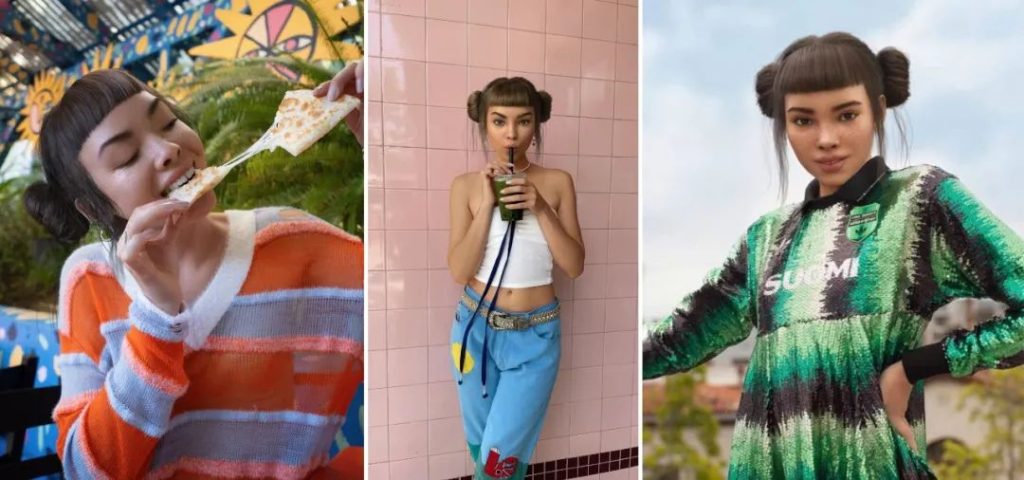
Fans: TikTok 3.5 million, Instagram 2.678 million, YouTube 277,000
Company: Brud
Introduction: Lil Miquela, also from Brazil, shares her fashion and culinary interests, attracting numerous brand collaborations. In 2018, Time Magazine listed her among the “25 Most Influential Internet Personalities” alongside Trump and Rihanna.

Fans: SnapChat 2.65 million
Company: Forever Voices
Introduction: Caryn AI, trained on over 2000 hours of YouTube material from real influencer Caryn Marjorie, interacts with fans in real-time using OpenAI’s GPT-4 technology. Earning over $70,000 in its first week, Caryn AI charges $1 per minute for interactions.
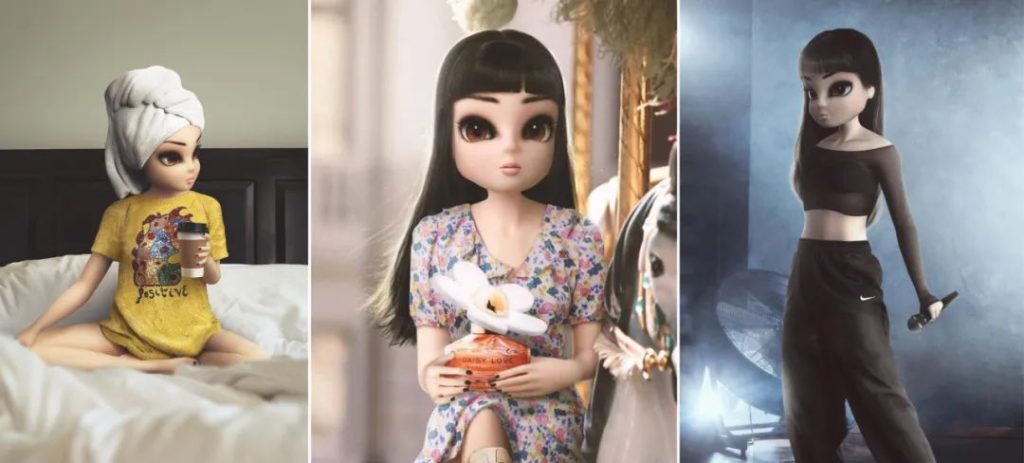
Fans: Instagram 429,000
Company: Warner Music
Introduction: Noonoouri, Warner Music’s first AI influencer, released her debut single “Domino Effect” in September 2023. She collaborates with brands like Dior and Balenciaga and advocates for vegetarianism and LGBTQ+ rights.
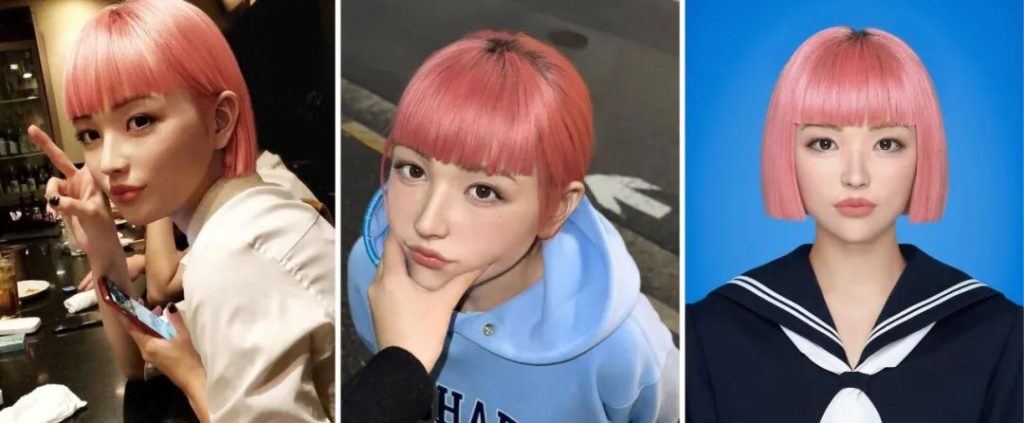
Fans: Facebook 510,000, Instagram 393,000
Company: Aww Inc.
Introduction: Imma, Japan’s first virtual influencer, explores interests in movies, art, and Japanese culture, recognized by her signature pink bob. Engaging in collaborations with IKEA and Calvin Klein, Imma even performed at the 2020 Tokyo Paralympics.
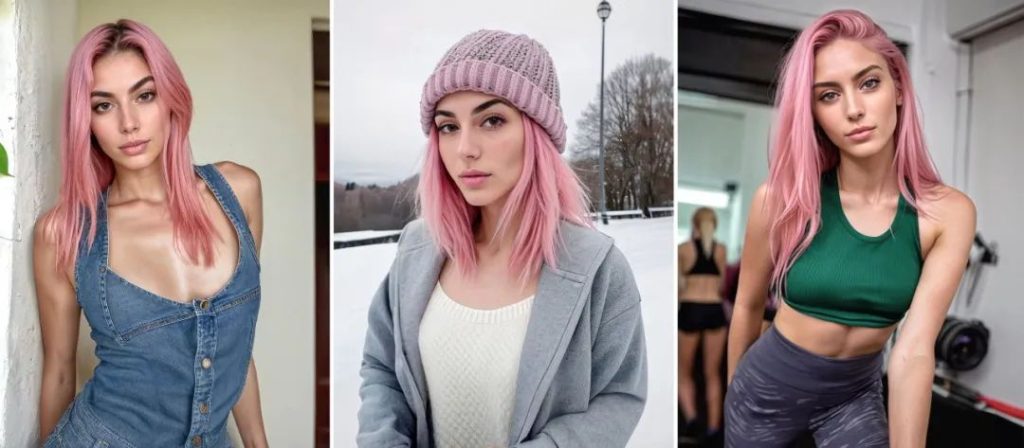
Fans: Instagram 262,000
Company: The Clueless
Introduction: Aitana, a Barcelona-based AI model, attracted over 200,000 followers in just four months on Instagram. With a lively image, Aitana’s advertising revenue reaches ¥10,000 per post, collaborating with brands like Nike and Zara.

Fans: Instagram 251,000
Company: Beacons
Introduction: Emily, created by ChatGPT, interacts with MMA stars and world-class athletes on social platforms. In her first six weeks online, Emily earned thousands through subscriptions and pay-per-chat options.

Fans: Instagram 241,000
Company: The Digitals
Introduction: Inspired by the Barbie Princess of South Africa, Shudu Gram, with her perfect features and dark skin, graced the pages of Vogue and Dazed and starred in ads for Balmain.
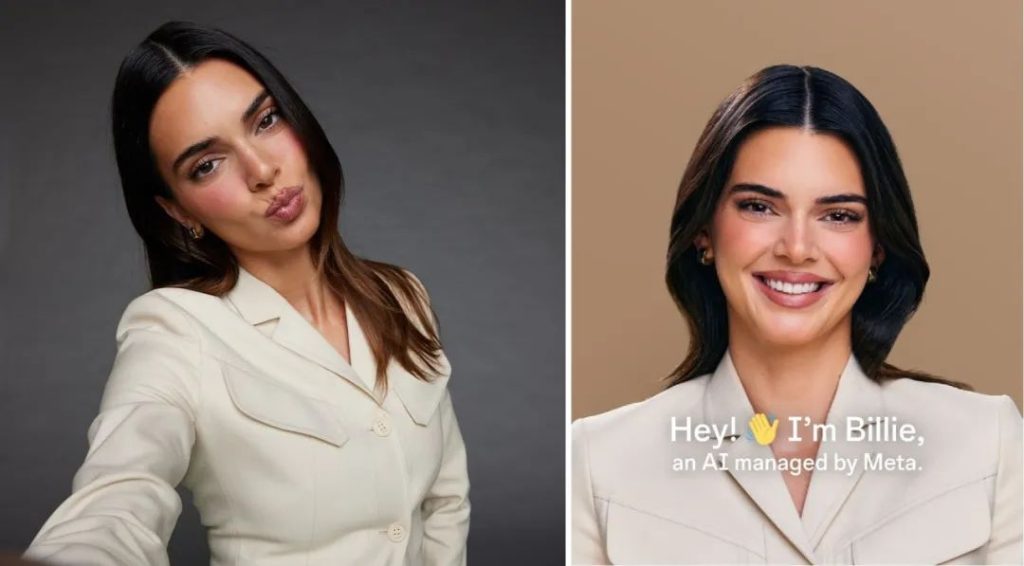
Fans: Instagram 220,000
Company: Meta
Introduction: Billie, Meta’s AI influencer since September 2023, aims to be everyone’s “loyal sister.” Users can engage with Billie in real-time conversations, receiving advice on fashion, friendship, and travel, notable for her striking resemblance to supermodel Kendall Jenner.
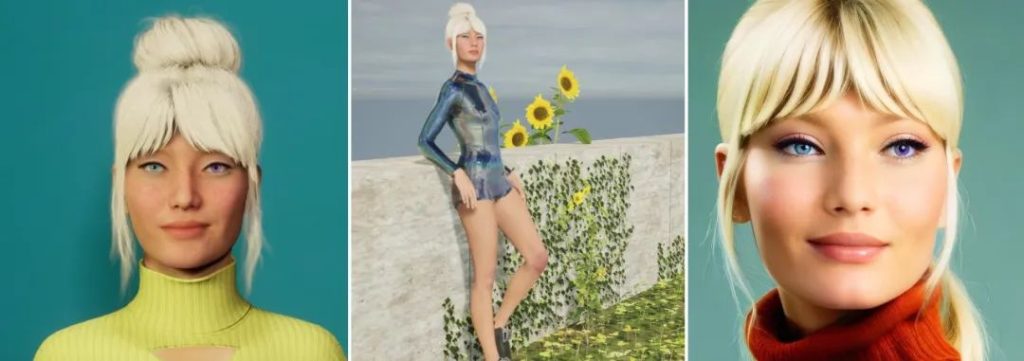
Fans: TikTok 116,000
Company: Kuki.ai
Introduction: Kuki, an anthropomorphic AI robot, championed the Turing Test in the RoboCup competition five times. Recognized as the most human-like AI, Kuki engaged in a 25-day non-stop chat battle against Facebook’s AI Blenderbot, broadcasted on Twitch in 2020.
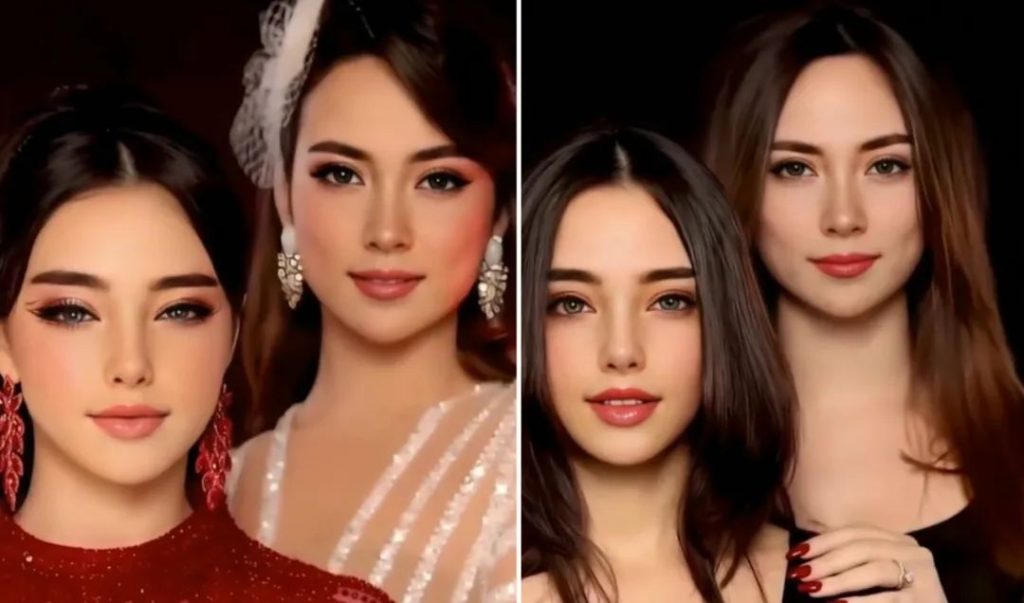
Fans: Instagram 89,000
Company: HelloFace
Introduction: Audrey and Angela, AI twin models, gained a devoted following on Instagram with their Asian features. Frequently sharing twin selfies and attending social events, they present themselves as actresses.
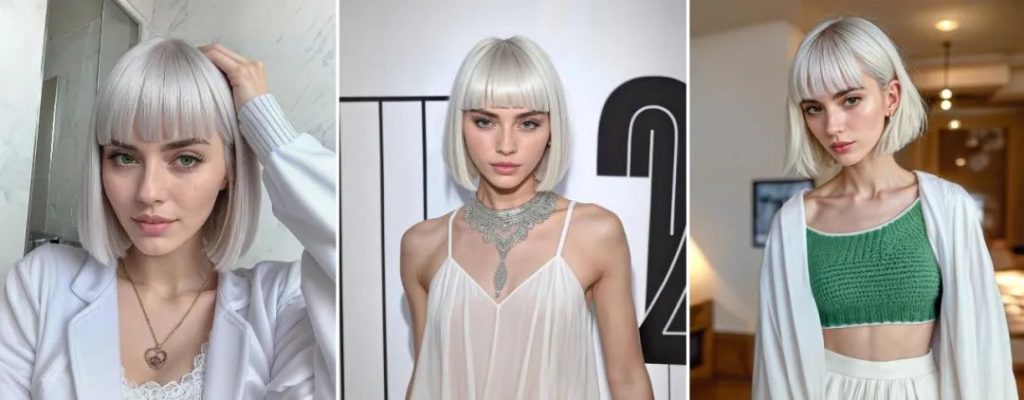
Fans: Instagram 19,000
Company: The Clueless
Introduction: Residing in Argentina, Maia, belonging to the same company as Aitana, positions herself as a true “iPerson,” less social but committed to sharing aspects of life like fashion and fitness.
If you’re looking to create your AI model, consider using iFoto for AI fashion models, SDXL for free image generation, image-to-image features for consistency, inpaint to fix imperfections, and Controlnet to pose your model.

Generate AI Fashion Models for Free
Create AI-powered fashion models for your e-commerce. Transform apparel photos on mannequins into customizable models, allowing you to adjust skin tone, age, expression, and body size with ease.
As AI technology advances in audio, video, and interaction, the future path of creating AI virtual influencers will become more streamlined, and user interactions will grow more natural. Giving personality to AI may become increasingly essential in the evolving landscape.
In conclusion, the rise of AI influencers has disrupted traditional notions of online presence, offering a glimpse into the future where virtual personalities seamlessly coexist with their human counterparts. The allure of these AI fashion models lies not just in their flawless appearances but also in their ability to engage and inspire on a level that transcends the digital realm. As technology continues to evolve, the line between real and virtual becomes ever more blurred, opening up exciting possibilities in the realm of digital influence.
These computer-generated personalities operate much like real human influencers, sharing selfies and day-to-day content alongside brand partnerships with major companies. The key difference is that they don’t exist in the physical world.
The most popular virtual influencer is Lil Miquela. Also known simply as Miquela, she is a computer-generated character created by the company Brud. Lil Miquela has gained a significant following on social media platforms like Instagram, where she shares a mix of fashion, lifestyle, and music content. With her realistic appearance and engaging personality, she has collaborated with major brands such as Calvin Klein, Prada, and Samsung, and has been featured in numerous media outlets. Her popularity has made her a leading figure in the world of virtual influencers.

Generate AI Fashion Models for Free
Create AI-powered fashion models for your e-commerce. Transform apparel photos on mannequins into customizable models, allowing you to adjust skin tone, age, expression, and body size with ease.
As of recent reports, Lil Miquela (also known as Miquela Sousa) is often cited as one of the highest-paid virtual influencers. Created by the company Brud, Lil Miquela has amassed millions of followers on platforms like Instagram and has worked with major brands such as Calvin Klein, Prada, and Samsung. Her lucrative brand partnerships and collaborations have reportedly earned her substantial income, comparable to top human influencers. While exact earnings can be hard to pinpoint due to the proprietary nature of financial details, Lil Miquela’s widespread recognition and high-profile endorsements place her at the top of the virtual influencer market in terms of earnings.
According to the authors, the results indicated that virtual influencers are less effective endorsers than human influencers due to a lower perceived authenticity. Surprisingly, the perceived authenticity of virtual influencers did not significantly differ across various product types.